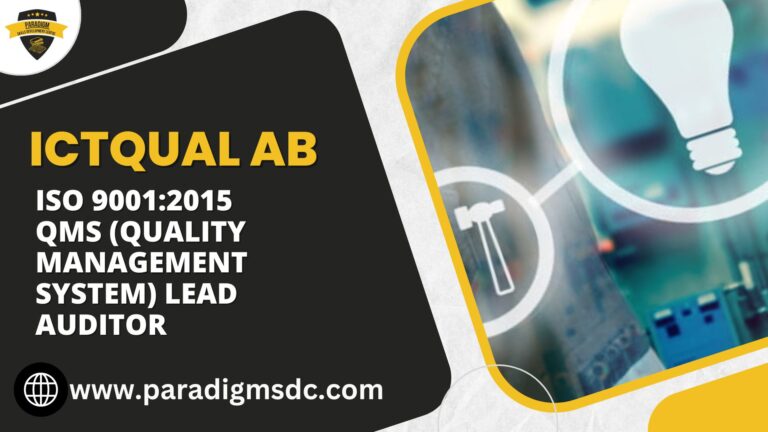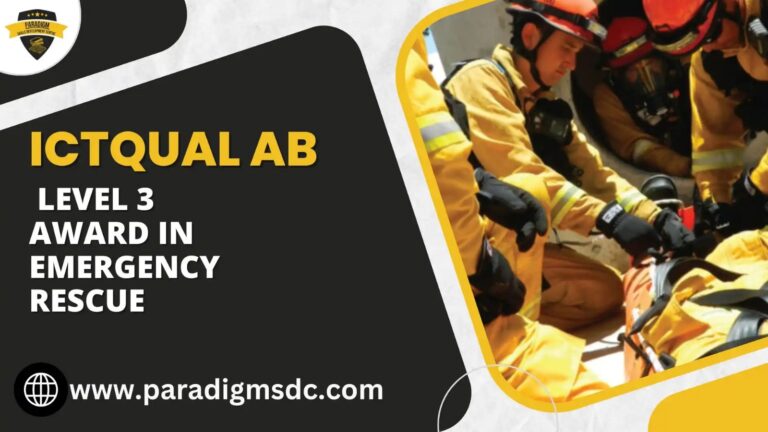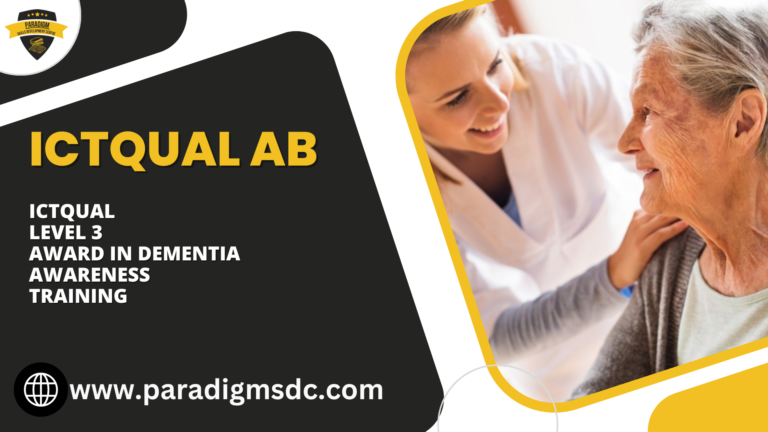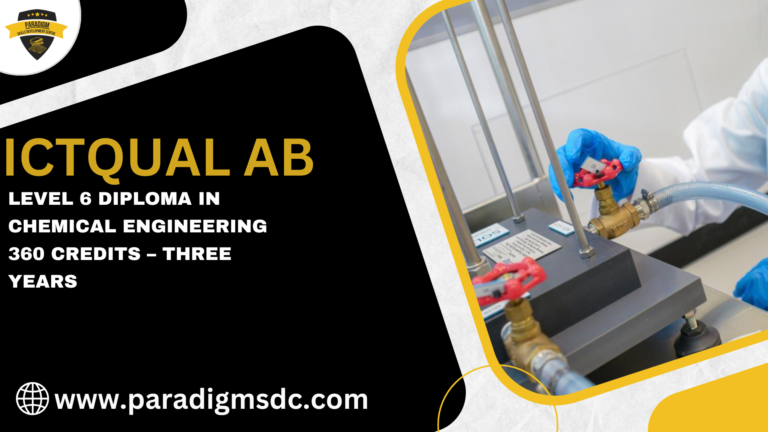Course Introduction
The ICTQual Level 2 Award in Basic Life Support and Management of Anaphylaxis is a comprehensive course designed to equip participants with essential life-saving skills. This qualification is crucial for anyone who may need to respond to emergency situations involving cardiac arrest or severe allergic reactions, known as anaphylaxis. The course emphasizes practical skills and knowledge, ensuring that learners are prepared to act swiftly and effectively in critical situations.
Course Overview
The ICTQual Level 2 Award in Basic Life Support and Management of Anaphylaxis provides a thorough understanding of basic life support (BLS) techniques and the management of anaphylactic reactions. The course is structured to offer both theoretical knowledge and hands-on practice. Participants will learn how to recognize life-threatening emergencies, provide appropriate interventions, and manage anaphylactic episodes with confidence.
Course Study Units
- Introduction to Basic Life Support (BLS)
- Cardiopulmonary Resuscitation (CPR)
- Use of Automated External Defibrillators (AEDs)
- Management of Choking
- Introduction to Anaphylaxis
- Recognizing Anaphylaxis
- Emergency Treatment of Anaphylaxis
- Post-Emergency Procedures
Learning Outcomes
By the end of the course, participants will be able to:
Introduction to Basic Life Support (BLS)
- Understand the principles and importance of Basic Life Support.
- Recognize the components of the chain of survival.
- Identify legal and ethical considerations when providing BLS.
- Assess scene safety and implement personal protection measures.
Cardiopulmonary Resuscitation (CPR)
- Demonstrate adult CPR techniques, including chest compressions and rescue breaths.
- Apply CPR modifications for children and infants.
- Use barrier devices correctly during resuscitation.
- Perform continuous cycles of CPR until professional help arrives.
Use of Automated External Defibrillators (AEDs)
- Explain the function and importance of AEDs in cardiac arrest situations.
- Operate an AED safely and effectively.
- Recognize when an AED is necessary and appropriate to use.
- Perform safety checks and troubleshoot common AED issues.
- Integrate the use of an AED with ongoing CPR.
Management of Choking
- Identify the signs and symptoms of choking.
- Distinguish between partial and complete airway obstructions.
- Apply appropriate techniques for relieving choking in adults, children, and infants.
- Perform back blows and abdominal thrusts effectively.
- Manage choking scenarios through practical drills and role-play exercises.
Introduction to Anaphylaxis
- Define anaphylaxis and understand its pathophysiology.
- Identify common triggers of anaphylaxis (e.g., foods, insect stings, medications).
- Recognize individuals at higher risk for anaphylactic reactions.
- Understand the basic mechanisms of allergic reactions leading to anaphylaxis.
Recognizing Anaphylaxis
- Identify the early and severe symptoms of anaphylaxis.
- Differentiate anaphylaxis from other medical conditions with similar presentations.
- Assess the severity of anaphylactic reactions promptly.
- Monitor and document symptoms and patient responses.
Emergency Treatment of Anaphylaxis
- Demonstrate the correct use of adrenaline auto-injectors (e.g., EpiPen).
- Administer the correct dosage of adrenaline effectively.
- Position the patient appropriately during and after administration.
- Provide continuous monitoring and reassessment after initial treatment.
- Apply practical training with training auto-injectors to build confidence and proficiency.
Post-Emergency Procedures
- Communicate effectively with emergency services during and after an incident.
- Record and report the details of the emergency accurately.
- Provide necessary follow-up information for further medical treatment.
- Offer emotional support and reassurance to the patient and bystanders.
- Reflect on the incident to identify learning points and areas for improvement.
Course Benefits
- Enhanced Life-Saving Skills: Participants gain vital skills that can make the difference between life and death in emergency situations.
- Increased Confidence: Hands-on practice ensures that learners feel confident in their ability to respond to real-life emergencies.
- Certification: Successful completion of the course results in a recognized qualification, boosting employability and professional development.
- Preparedness: Learners are prepared to handle both cardiac and severe allergic emergencies, making them valuable assets in any setting.
Who is This Course For?
This course is ideal for:
- Healthcare professionals
- First responders
- Teachers and childcare providers
- Sports coaches
- Anyone responsible for the welfare of others
- Individuals looking to enhance their emergency response skills
Future Progression
Upon completing the ICTQual Level 2 Award in Basic Life Support and Management of Anaphylaxis, learners may choose to advance their skills and knowledge through higher-level qualifications and specialized courses, such as:
- ICTQual Level 3 Award in Emergency Paediatric First Aid
- ICTQual Level 3 Award in Administering Emergency Oxygen
- ICTQual Level 3 Diploma in Health Safety and Environment
- Advanced courses in healthcare and emergency response
This course is an invaluable stepping stone for those seeking to make a meaningful impact in emergency situations, ensuring the safety and well-being of individuals in various environments







